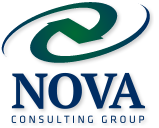To be considered a sales professional in Economy 2.0 requires understanding how to build committed relationships properly. It is a critical skill set – one that not every salesperson possesses. Most of the sales teams we coach understand the importance of making solid and committed relationships between them and their buyer counterparts, but what we typically find is a “canned” methodology from an off-the-shelf sales training program that tells the sales team to “see it from the customer’s point of view.” Unfortunately, this approach does not provide the insight and judgment required in today’s selling environment. Instead of the “canned” process, we recommend coaching high-performance selling teams on the science that supports commitment in the buyer-seller relationship.
Parties engage in “exchange interactions” depending on the values they receive from those exchanges. These values are both economic and social. Over time these economic and social outcomes increase or decrease the participants’ trust in each other and their commitment to maintaining the exchange.
The goal of buyer-seller relationships is about building buyer commitment to you, the seller. A committed buyer relationship is a result of satisfaction. It is that simple (and complex). Satisfaction has two components – economic (economic rewards that flow from the relationship, such as sales volume and margins) and non-economic (a positive affective response to the non-economic, social aspects of the relationship that are fulfilling, gratifying, and easy-Geyskens 1999). Surrounding the satisfaction components are conflict (a consequence of different perceptions of goals and roles, which is inevitable in every buyer-seller relationship) and trust (which exists when the partners in the exchange have confidence in each other’s reliability and integrity). Put another way; you gain buyer commitment by providing economic and non-economic satisfaction while managing conflict and building trust.
In the buyer-seller relationship, the critical satisfaction component is economic satisfaction. That is not to say that non-economic satisfaction is not essential. It is. You gain and foster it by applying the influencing Principle of Liking. Still, non-economic satisfaction does not win the business or the buyer’s commitment to do business with you and your company. This may seem obvious, but we often find in our client’s pipelines opportunities that are there because the salesperson believes that the “buyer likes me” and that they will “eventually buy from me.” Check your pipeline. These never-will-close placeholders are there.
In his research, Building Buyer Commitment to the Salesperson, Brian Rutherford, University of Kennesaw, working with over 2000 buyers, points out, “when buyers are economically satisfied in the relationship, they will be more committed to the sales person.” In other words, our sales teams must understand what economically buyers are seeking and work to provide it, where possible. High-performance sales teams cannot afford the time it takes to pursue prospects that do not fit their products or services. When buyers are economically satisfied with the relationship, there is less potential for conflict. Reducing conflict will positively affect the buyer’s non-economic satisfaction and trust.
So pay attention to your markets and how your products and services are positioned. Suppose you are in a commodity market with little to no room to add value. In that case, your sales will be transaction-based, so buyer economic satisfaction is achieved through frequent, efficient sales transactions. Make these as easy for the buyer as possible. If you sell to a market where there is room to add value or the product-services model is the norm, you can spend time addressing non-economic satisfaction but keep in mind that your buyer’s commitment to you is driven by economic satisfaction. Spending too much time on non-economic satisfaction will create conflict in these situations. This is why good sales leaders coach their teams to be cordial but get to the point.
When you think about sales effectiveness at your organization, does it seem like you are close but just missing those unique elements that give you that competitive edge? Looking for a way to understand how your buyer thinks, decides, and reveals information? At The Nova Consulting Group, we believe that professional selling is a craft. With the Advanced Sales Conversation©, you have those missing elements that move your salespeople from competency to mastery. With our deep understanding of what makes and sustains high-performance organizations, we provide integrated solutions that do not replace your sales methodology and yet advance a progressive selling mindset. Be bolder, more insightful, and get results. To learn more about how to master the craft of sales and encourage sustainable high performance, call (617) 933-7249 or email info@novaconsultinggrp.com.


